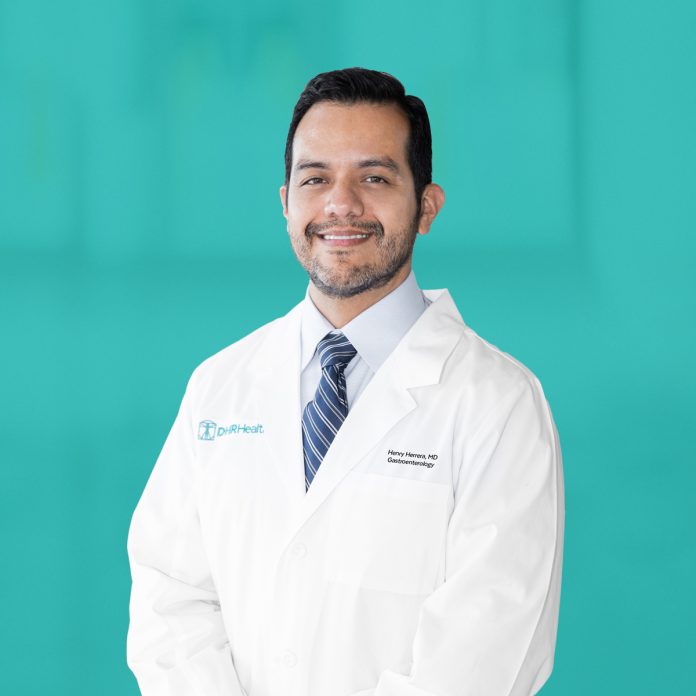
By: Henry R. Herrera Jr., MD
DHR Health Gastroenterology Institute
Colon cancer refers to cancer in the large intestine. It is the third most diagnosed cancer in the United States and is the second deadliest cancer. In 2024, the American Cancer Society estimates nearly 153,000 new cases of colorectal cancer. Despite these statistics, colon cancer is also one of the most preventable cancers, which is why it is so important for the public to know about the symptoms of colon cancer, as well as how to prevent it.
Patients with early stages of colon cancer may not experience any symptoms at all. When symptoms do occur, they can include a change in your bowel habits, abdominal pain, rectal bleeding, and abnormal weight loss. Unfortunately, abdominal pain due to colon cancer is usually associated with advanced stages of the disease, including the possibility of the spread to distant organs. Bloodwork may also reveal low iron levels, low blood counts, or both.
As we age, our risk for colon cancer increases. Previously, the age to begin colon cancer screening was 50. Over the past 30 years, the incidence of colon cancer has steadily been declining, in large part due to screening efforts. However, studies show that the number of younger patients developing colon cancer was rising. We now recommend that patients at average risk for colon cancer should begin screening at the age of 45. Patients with a family history of colon cancer may need to begin screening at the age of 40–or even earlier.
Screening can be done by submitting stool samples or through imaging. While there are a variety of screening tests available, most are only capable of cancer detection, including the stool-based tests and the virtual colonoscopy. The gold standard for colon cancer screening remains the colonoscopy because of its ability to not only detect cancer but also prevent it, by removing pre-cancerous growths known as polyps. By removing polyps, colon cancer is prevented, and your risk of death due to colon cancer also decreases. If no polyps are found during a colonoscopy, a repeat test is done every 10 years until the age of 75.
Remember–colon cancer is a preventable cancer. Be sure to contact your primary care provider or your gastroenterologist and do not delay your colon cancer screening; it can save your life.
For more information or to speak to one of our experts, please call DHR Health Gastroenterology Institute at 956-362-3636




